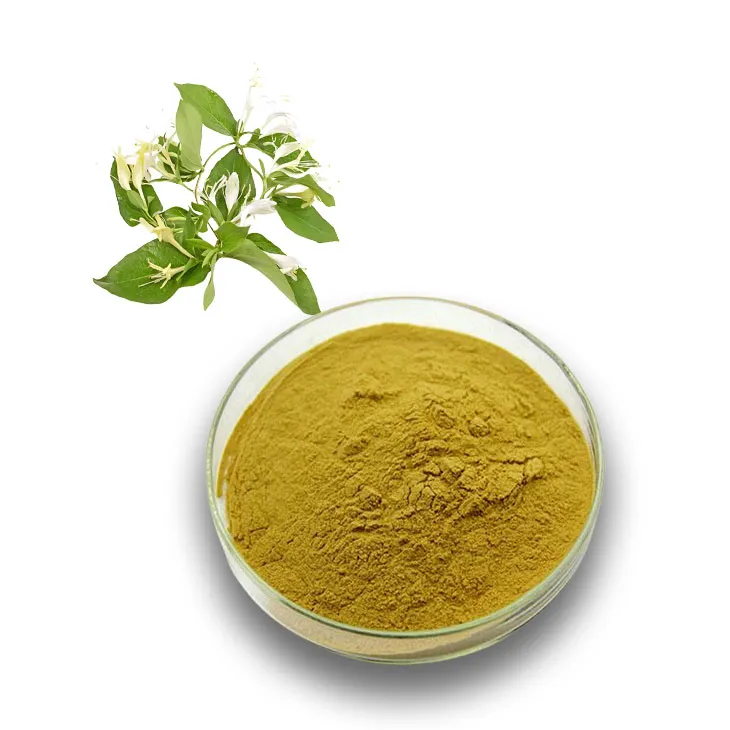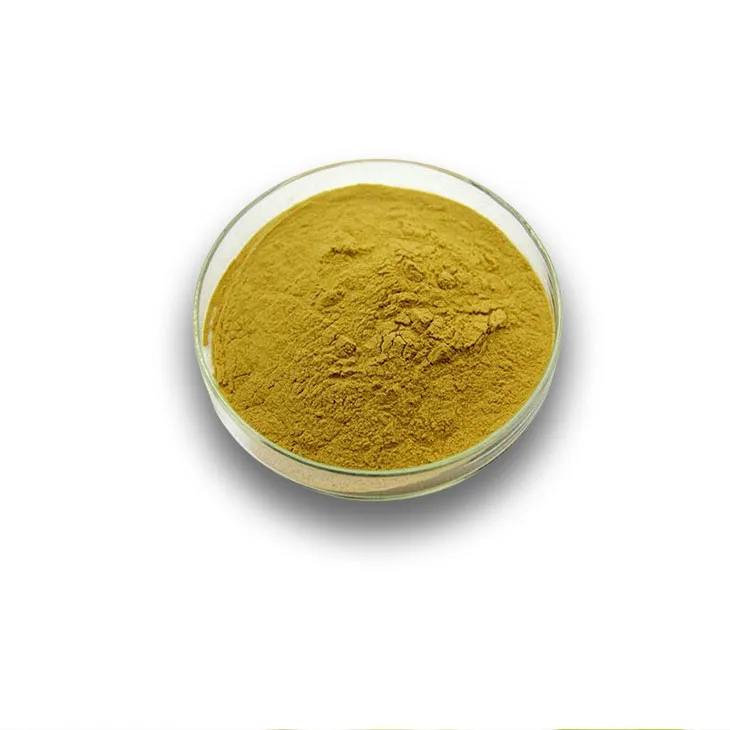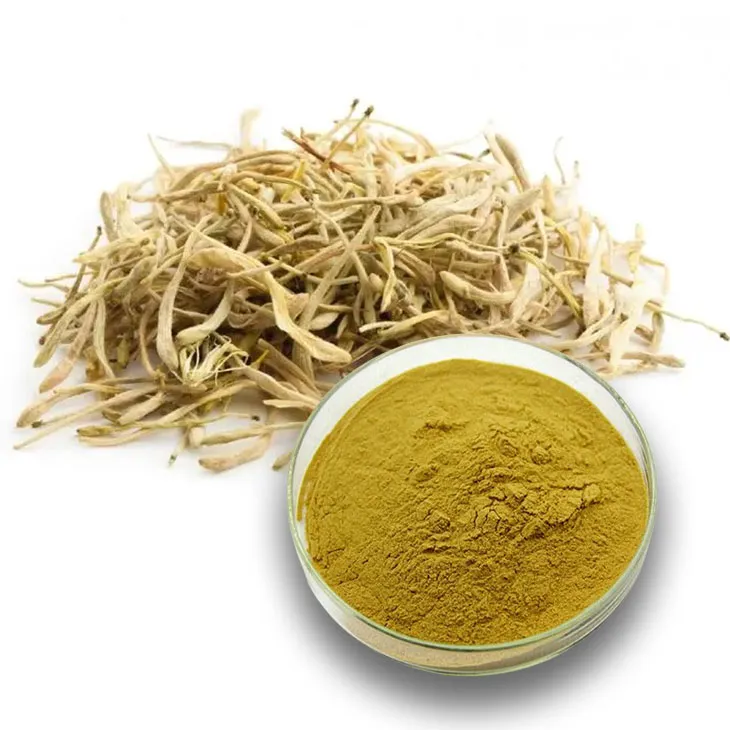- 0086-571-85302990
- sales@greenskybio.com
The flavor of mature honeysuckle and natural honeysuckle pollen.
2024-11-12

1. Introduction
Honeysuckle, a well - known plant, has captured the attention of many due to its unique characteristics. The flavor of mature honeysuckle and its pollen are two aspects that are of particular interest. The study of these elements not only helps us understand the plant better but also reveals their potential applications in different fields.

2. The Growth Process of Honeysuckle and the Development of Its Flavor
2.1 Influence of Sunlight
Sunlight plays a crucial role in the growth and flavor development of honeysuckle. Adequate sunlight exposure is essential for photosynthesis. During this process, the plant synthesizes various substances that contribute to its flavor. For example, in sunny conditions, honeysuckle can produce more sugars, which give it a sweeter taste. The intensity and duration of sunlight can affect the concentration of these flavor - related compounds. In areas with long hours of bright sunlight, the mature honeysuckle may have a more intense and complex flavor profile compared to those in shadier locations.
2.2 Role of Soil
The type of soil in which honeysuckle grows also impacts its flavor. Well - drained and nutrient - rich soils are favorable for honeysuckle. Different soil compositions can provide varying amounts of minerals and nutrients. For instance, soil rich in potassium may enhance the fruitiness of the honeysuckle's flavor, while soil with a good amount of nitrogen can influence the growth of the plant and potentially the production of certain flavor compounds. The pH level of the soil is another factor. A slightly acidic soil might be optimal for honeysuckle growth and flavor development, as it can affect the availability of nutrients to the plant.
2.3 Impact of Climate
Climate conditions, including temperature and humidity, are significant in shaping the flavor of mature honeysuckle. Honeysuckle thrives in temperate climates. In regions with a mild climate, the plant can grow steadily and develop a balanced flavor. High humidity can sometimes lead to a more lush growth, which may affect the concentration of flavor compounds. Extreme temperatures, either too hot or too cold, can be detrimental to the plant's growth and may result in an altered flavor. For example, a sudden frost can damage the plant and potentially change the flavor of the honeysuckle that it eventually produces.

3. The Unique Properties of Honeysuckle Pollen
3.1 Nutrient - Rich Composition
Honeysuckle Pollen is a nutrient - dense substance. It contains a variety of essential nutrients. Proteins are present in significant amounts, which are important for building and repairing tissues in the body. Additionally, it contains vitamins such as vitamin C, which is known for its antioxidant properties. Minerals like iron and zinc are also found in Honeysuckle Pollen. Iron is crucial for oxygen transport in the blood, while zinc plays a role in immune function and cell growth. These nutrients make honeysuckle pollen a potentially valuable addition to one's diet.
3.2 Health Benefits
The health benefits associated with honeysuckle pollen are numerous. Its antioxidant properties, mainly due to the presence of vitamin C and other compounds, can help protect the body against free radical damage. Free radicals are unstable molecules that can cause oxidative stress and damage cells, leading to various health problems such as aging and certain diseases. Honeysuckle pollen may also have anti - inflammatory effects. Inflammation is a natural response of the body, but chronic inflammation can be harmful. The anti - inflammatory properties of the pollen may help reduce inflammation in the body, potentially alleviating symptoms of conditions like arthritis. Moreover, some studies suggest that it may have a positive impact on the immune system, helping the body to fight off infections more effectively.

4. Significance in Traditional Medicine
In traditional medicine, both mature honeysuckle and its pollen have been used for centuries. Honeysuckle has been used to treat various ailments. In some traditional medical systems, the extract of honeysuckle is used for its antibacterial and antiviral properties. It is believed to be effective against certain infections, especially those related to the respiratory system. Honeysuckle pollen, on the other hand, has been used to boost energy and vitality. It is often prepared in the form of tinctures or powders and consumed to improve overall health. However, it should be noted that while traditional uses provide valuable insights, modern scientific research is still needed to fully validate these claims.

5. Applications in the Cosmetics Industry
5.1 Skin Benefits
Honeysuckle and its pollen have potential applications in the cosmetics industry, particularly for skin health. The antioxidant and anti - inflammatory properties of honeysuckle pollen can be beneficial for the skin. It can help reduce signs of aging, such as wrinkles and fine lines, by protecting the skin from oxidative damage. The nutrients present in the pollen can also nourish the skin, improving its texture and complexion. Honeysuckle extracts are sometimes used in skin creams and lotions for their soothing properties. They can help calm irritated skin and reduce redness, making them suitable for sensitive skin types.
5.2 Hair Care
In addition to skin benefits, honeysuckle - based products may also have applications in hair care. The nutrients in honeysuckle pollen can potentially strengthen hair follicles. This can lead to healthier hair growth and reduced hair fall. Honeysuckle extracts can also add shine to the hair and make it more manageable. Some natural hair care products incorporate honeysuckle extracts or pollen to provide these benefits.
6. Role in the Food Industry
6.1 Flavoring Agent
The unique flavor of mature honeysuckle makes it a potential flavoring agent in the food industry. It can be used to add a sweet, floral note to various products. For example, in the production of jams, honeysuckle can be used as an alternative to traditional fruits, providing a distinct and exotic flavor. In the beverage industry, honeysuckle - flavored drinks are becoming increasingly popular. The natural flavor of honeysuckle can enhance the taste of teas, juices, and even alcoholic beverages.
6.2 Nutritional Ingredient
As mentioned earlier, honeysuckle pollen is rich in nutrients. In the food industry, it can be used as a nutritional ingredient. It can be added to health foods, such as energy bars or smoothies, to boost their nutritional value. However, proper processing and safety measures need to be ensured when using honeysuckle pollen in food products to avoid any potential allergic reactions.
7. Conclusion
The flavor of mature honeysuckle and the properties of natural honeysuckle pollen are both fascinating and valuable. Understanding how the flavor of honeysuckle is developed through environmental factors provides insights into its cultivation and potential for flavor enhancement in various products. The nutrient - rich and beneficial properties of honeysuckle pollen open up possibilities in multiple industries, including traditional medicine, cosmetics, and food. However, further research is still needed to fully explore and harness the potential of these elements, especially in terms of safety and efficacy in different applications.
FAQ:
What are the main factors influencing the flavor development of mature honeysuckle?
Sunlight, soil, and climate are the main factors. Adequate sunlight can promote photosynthesis in honeysuckle, which may influence the production of certain compounds related to flavor. Different soil types can provide various nutrients, affecting the growth and flavor formation. Climate, such as temperature and humidity, also plays a role. For example, a suitable temperature range and proper humidity can ensure the normal physiological activities of honeysuckle, which is conducive to the development of its characteristic flavor.
What nutrients are rich in honeysuckle pollen?
Honeysuckle pollen is rich in proteins, vitamins (such as vitamin C, vitamin E), and minerals (such as potassium, magnesium). These nutrients play important roles in maintaining the normal physiological functions of the human body. For example, proteins are the building blocks of the body, vitamins can act as antioxidants, and minerals are involved in various enzymatic reactions.
What are the potential health benefits of honeysuckle pollen?
It may have antioxidant effects due to the presence of vitamins and other substances. Antioxidants can help the body combat free radicals, reducing oxidative stress. It may also have anti - inflammatory properties, which can be beneficial for some inflammatory conditions. Additionally, the nutrients in honeysuckle pollen can potentially support the immune system, helping the body to better resist diseases.
How is honeysuckle used in traditional medicine?
In traditional medicine, honeysuckle is often used to treat various ailments. For example, it may be used to relieve symptoms of colds and flu, such as fever and cough. It is believed to have anti - pathogenic properties, which can help the body fight off infections. Honeysuckle may also be used in herbal formulations to soothe inflammation in the body.
How is honeysuckle applied in the cosmetics industry?
In the cosmetics industry, honeysuckle extract or components related to honeysuckle may be used for their antioxidant and anti - inflammatory properties. It can be added to skincare products such as creams and lotions. These products may help to protect the skin from environmental damage, reduce inflammation, and improve skin health.
Related literature
- The Composition and Properties of Honeysuckle and Its Applications"
- "Honeysuckle: From Field to Health and Beauty"
- "Nutritional and Medicinal Values of Honeysuckle Pollen"
- ▶ Hesperidin
- ▶ citrus bioflavonoids
- ▶ plant extract
- ▶ lycopene
- ▶ Diosmin
- ▶ Grape seed extract
- ▶ Sea buckthorn Juice Powder
- ▶ Beetroot powder
- ▶ Hops Extract
- ▶ Artichoke Extract
- ▶ Reishi mushroom extract
- ▶ Astaxanthin
- ▶ Green Tea Extract
- ▶ Curcumin Extract
- ▶ Horse Chestnut Extract
- ▶ Other Problems
- ▶ Boswellia Serrata Extract
- ▶ Resveratrol Extract
- ▶ Marigold Extract
- ▶ Grape Leaf Extract
- ▶ blog3
-
High purity olive leaf extract
2024-11-12
-
Lavender oil extraction method
2024-11-12
-
100% organic virgin sea buckthorn fruit oil
2024-11-12
-
Lotus leaf extract powder factory in China
2024-11-12
-
China aged garlic extract supplier
2024-11-12
-
Deer antler extract powder manufacturer
2024-11-12
-
Saw palmetto extract vs whole herb
2024-11-12
-
Clove Powder
2024-11-12
-
Mulberry Extract
2024-11-12
-
Peppermint Oil
2024-11-12
-
Stevia Extract
2024-11-12
-
Camu Camu Extract
2024-11-12
-
Chasteberry Extract
2024-11-12
-
Cranberry Extract
2024-11-12
-
Apricot Powder
2024-11-12
-
Mulberry leaf Extract
2024-11-12
-
Avocado Extract Powder
2024-11-12





















